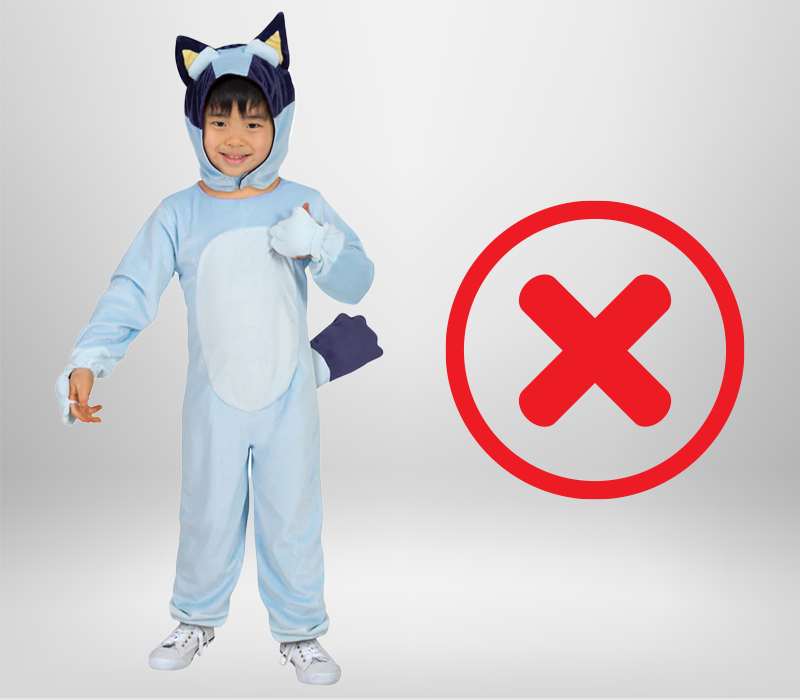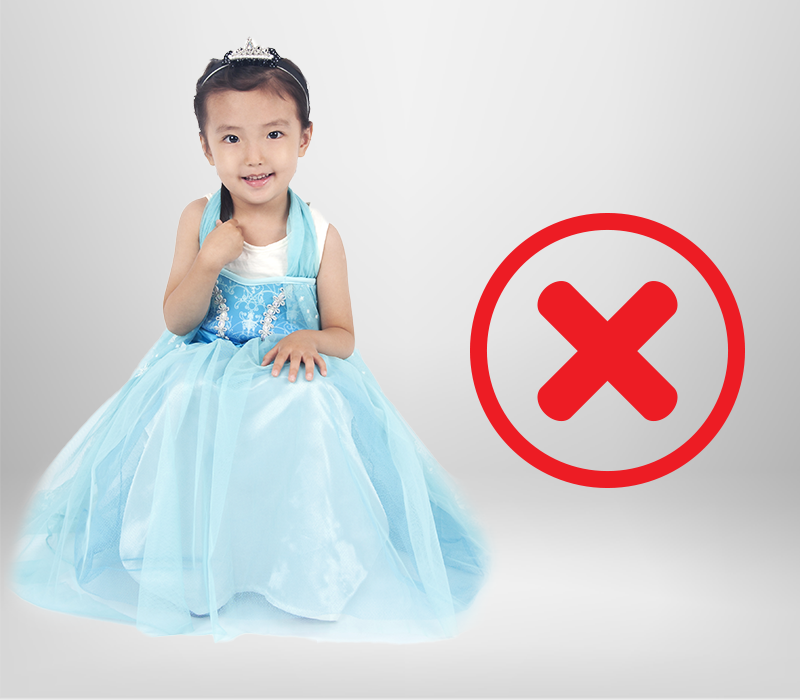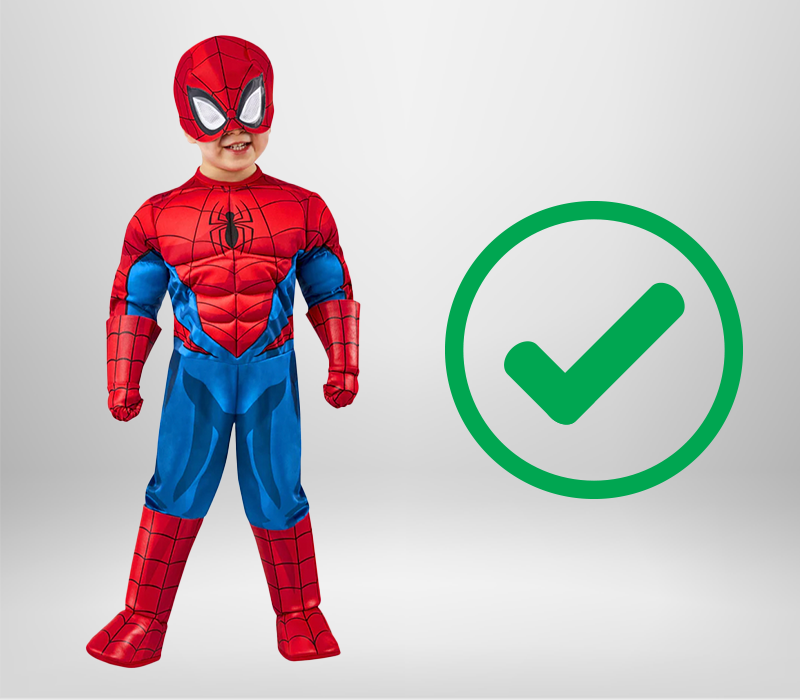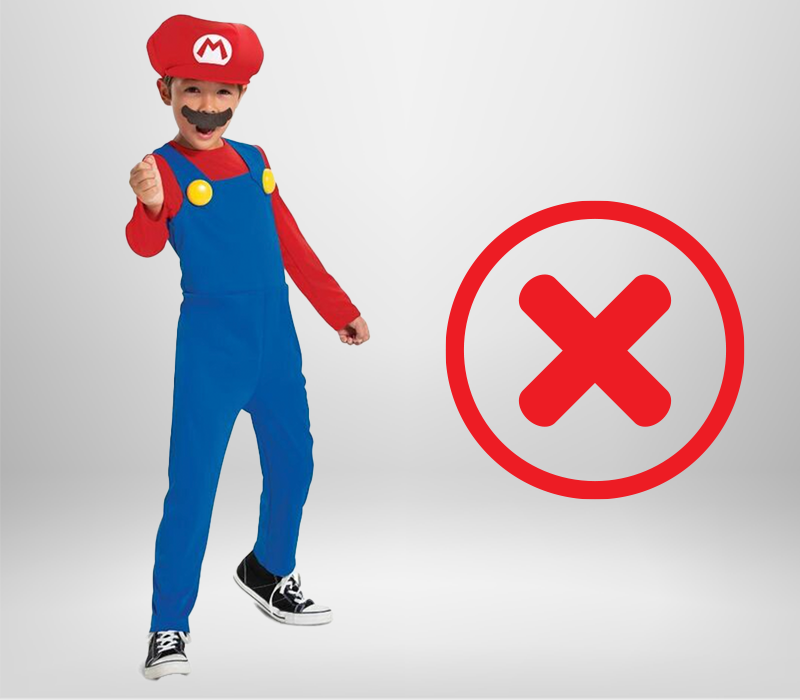Sorry, kid. I know you have read a book that has Bluey in it. But she is a character created for the popular animated television series, also titled Bluey. She is not a book character and your parents should know better for letting you come dressed to Book Week like that.
Back in 1945, the Children’s Book Council of Australia founded Children’s Book Week. This is, as the name suggests, a week-long celebration of books, and Aussie children’s authors and illustrators. Throughout the week, teachers and librarians create displays in classrooms and libraries, engage kids in book-related activities, and (most importantly…?) encourage kids to dress up as their favourite book characters.
Each year, the CBCA announces a theme to celebrate Book Week. The very first was: “United Through Books” and every year since there has been a new book-related theme.
But you know what none of those themes has ever been? “Dress up as a character you like from the telly.”
The value of Children’s Book Week
I love TV. And yeah, I’m more than happy to support Children’s Television Week in schools (opening the door to every elder millennial and younger Gen X’er to try to convince their kid to dress up as one of the Miraculous Mellops). But also, it is important to keep in mind that books are also pretty good and there’s value in celebrating them on their own.
A 2019 study found that “parents who read one picture book with their children every day provide their children with exposure to an estimated 78,000 words each year”. The study explained that, in the first five years, kids from “literacy-rich homes” can “hear a cumulative 1.4 million more words during storybook reading than children who are never read to”.
Kids who are read to as babies are found to score higher in tests related to language skills and cognitive development. Continue this engagement with book reading and there will be benefits related to child language and IQ until they reach their mid-teens.
TV is wildly entertaining. And it can be informative. But the same educational benefits aren’t there in the same way that book reading provides. Books should be celebrated, which is what Children’s Book Week does so well.
Yes, there are books with Bluey in them
Go to your local book store (or even the book department at Big W) and you’ll find a range of books with beloved Australian cartoon dog Bluey in them. Most of these stories are adaptations of episodes from the show, like the one where Bluey goes to the creek with her family and learns that “the creek is beautiful”, and the one where she makes a new French friend while camping and they make-believe hunt her dad Bandit as if he was a wild pig.
The books are both fine, I guess, but they lack genuine literary value. And, like all book adaptations of TV shows, the original TV shows are simply far better. In fairness, at least reading the books of the TV show is a better experience than watching this American lady on YouTube reading the book of the TV show:
Bluey is a TV show character who appears in books. But she isn’t really a book character. There is a distinction.
I appreciate there is a grey zone with some of these characters who have been adapted back and forth between books and screen. Here’s a helpful guide:
Bluey – Made for a TV show. She’s a TV show character, so no – not appropriate for Book Week.

Elsa from Frozen. Yes, Frozen is loosely based on the Hans Christian Anderson story The Ice Queen. But, no, Elsa isn’t a character from the book – she’s a creation for the popular Disney motion picture.

Spider-Man is as grey zone as a character can get. Most kids seeking to dress up as Spidey will know him from the movies and TV shows. But he is a book character, having debuted in Marvel Comics Amazing Fantasy #15 back in 1962. Very quickly, he was given his own comic book series, The Amazing Spider-Man, and the character has remained in print monthly ever since. In August 2023, there are four different monthly comic book series that all tell original Spider-Man stories. Some parents may argue the literary value of comic books, but there is no valid argument against Spider-Man being considered a book character.

Super Mario may feature in a Little Golden Book, but he’s 100 per cent a video game character. He began life fighting Donkey Kong in a 1981 video game and then went on to battle a giant lizard in the Mushroom Kingdom before later going on to become a tennis superstar and go-kart champion.

Shame
No kid should be marched out of a Children’s Book Week event for dressing up as a character who absolutely isn’t a book character. We don’t need to get all Game of Thrones on them and throw sticks at the kid dressed as The Mandalorian while shouting “shame” at them. But, as parents we need to responsibly guide them towards embracing the spirit of the occasion. Books are great for learning and better equipping kids to deal with the complexities of the world. We don’t need to turn them all into book lovers, but being a book appreciator is a pretty great win.
And for the record… Game of Thrones is a book series first and foremost, but is probably a pretty inappropriate Children’s Book Week costume idea.







